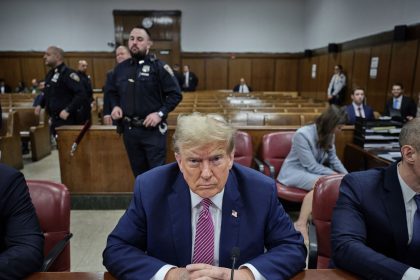FCC’s Media Deregulation Plan Can’t Go Forward, 3rd Circuit Says

WASHINGTON – The Federal Communications Commission must redo and better justify an order that eased restrictions on media companies wanting to consolidate their holdings in a single market, the Third U.S. Circuit Court of Appeals ruled Monday.
The highly anticipated ruling is a setback for companies such as Sinclair Broadcast Group and News Corp, who own both broadcast stations and newspapers in several metropolitan markets.
The FCC didn’t show that it adequately considered how “its sweeping rule changes will have an effect on ownership of broadcast media by women and racial minorities,” the Third Circuit said.
At issue was the agency’s decision to eliminate the newspaper-broadcast and the radio-TV cross-ownership rules; allow dual station ownership in markets with fewer than eight independent voices; and eliminate attribution of joint sales agreements as ownership; and created a diversity incubator program.”
An alliance of public-interest groups — Common Cause, the Communications Workers of America, Free Press, the Media Mobilizing Project, the Prometheus Radio Project and the United Church of Christ Office of Communication, Inc., as well as attorneys from the Georgetown Law Institute of Public Representation — challenged the Trump FCC’s ruling for its failure to address the impact of this radical deregulation on race and gender diversity in broadcasting.
Monday’s decision vacated all the moves the agency had made.
The court found the FCC’s deregulation of ownership arbitrary and capricious because it did not provide the requisite justification for how the agency gauged those changes’ impact on race and gender.
“Although it did ostensibly comply with our prior requirement to consider this [diversity] issue on remand, its analysis is so insubstantial that we cannot say it provides a reliable foundation for the Commission’s conclusions,” the court said.
But the court also suggested it might have found some adverse impact acceptable if only the commission had justified that outcome.
“The Commission might well be within its rights to adopt a new deregulatory framework (even if the rule changes would have some adverse effect on ownership diversity) if it gave a meaningful evaluation of that effect and then explained why it believed the trade-off was justified for other policy reasons. But it has not done so,” the ruling said.
The appeals court also agreed with Multicultural Media, Telecom and Internet Council and National Association of Black Owned Broadcasters which appealed the format of the newly created incubator reward system, the court finding it “badly designed” and liable to “create perverse incentives.”
“On remand the Commission must ascertain on record evidence the likely effect of any rule changes it proposes and whatever “eligible entity” definition it adopts on ownership by women and minorities, whether through new empirical research or an in-depth theoretical analysis,” the court said. “If it finds that a proposed rule change would likely have an adverse effect on ownership diversity but nonetheless believes that rule is in the public interest all things considered, it must say so and explain its reasoning. If it finds that its proposed definition for eligible entities will not meaningfully advance ownership diversity, it must explain why it could not adopt an alternate definition that would do so.
“Once again we do not prejudge the outcome of any of this, but the Commission must provide a substantial basis and justification for its actions whatever it ultimately decides,” the ruling states.
“Congress put broadcast-ownership limits in place for a reason: to promote a diversity of viewpoints among local stations,” Jessica J. González, vice president of strategy and senior counsel of Free Press, one of the plaintiffs in the case. “[We] sued the FCC for turning its back on this core principle, placing station ownership in too few hands and denying millions of people in the United States broadcast media that serve community needs.
“Media consolidation leaves communities with far less of the local news and information people need to stay informed,” she continued. “Despite the growth in digital-media options, free over-the-air broadcasting remains a critical news source for people of color and low-income communities in particular. To meet the needs of these populations, the FCC must nurture ownership diversity, not let giant companies like Nexstar, Fox and Sinclair devour even more local stations.”
FCC Commissioner Jessica Rosenworcel said in a statement released after the ruling that “media ownership matters because what we see on our screens says so much about who we are as individuals, as communities, and as a nation.”
“Over my objection, the FCC has been busy dismantling the values embedded in its ownership policies. Today, the Third Circuit Court of Appeals agreed,” she said. “The court rightly sent the FCC’s handiwork back to the agency because the FCC’s analysis was so “insubstantial.” The FCC shouldn’t be in the business of cutting corners when it comes to honoring our long-held values when updating media ownership policies.”
But in a separate statement, FCC Chairman Ajit Pai said the commission will appeal the decision.
“For more than 20 years, Congress has instructed the Federal Communications Commission to review its media ownership regulations and revise or repeal those rules that are no longer necessary. But for the last 15 years, a majority of the same Third Circuit panel has taken that authority for themselves, blocking any attempt to modernize these regulations to match the obvious realities of the modern media marketplace,” Pai said.
“It’s become quite clear that there is no evidence or reasoning—newspapers going out of business, broadcast radio struggling, broadcast TV facing stiffer competition than ever—that will persuade them to change their minds. We intend to seek further review of today’s decision and are optimistic that the views set forth today in Judge Scirica’s well-reasoned opinion ultimately will carry the day.”
In a partial dissent U.S. Circuit Judge Anthony Scirica said he would have let the deregulation stand.
The three-judge decision can be appealed to the full Third Circuit (en banc,) or directly to the U.S. Supreme Court.
The case is Prometheus Radio Project v. FCC.






















